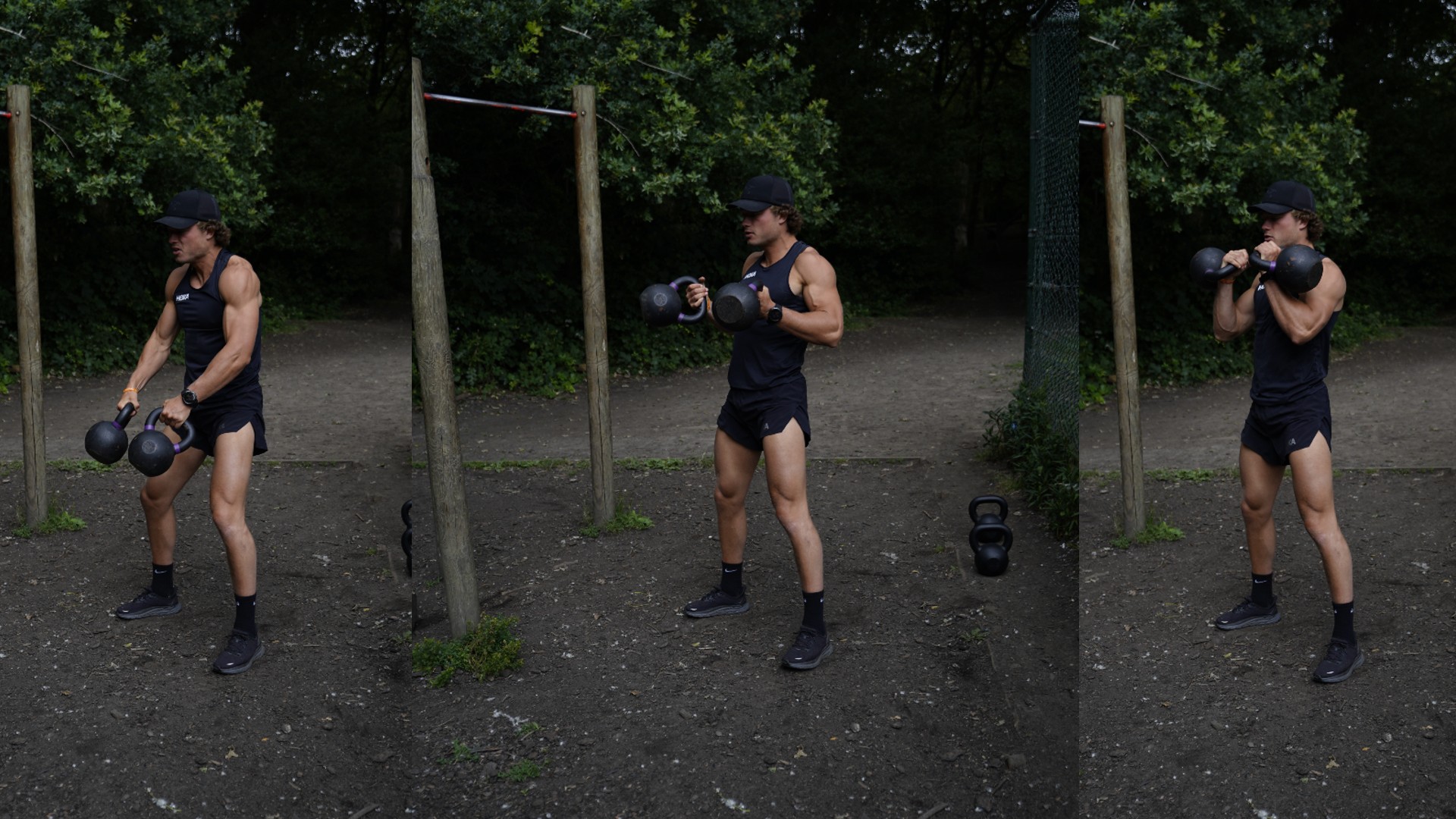
There’s no doubt that kettlebell workouts aren’t the easiest, but learning how to swing these cast-iron hunks of metal about is well worth doing. That’s because, according to personal trainer William Carter, kettlebells help to “forge full-body strength, build core stability, improve heart and lung capacity, and protect joints”.
“If you’re new to kettlebell training, it might seem like there’s a lot to learn at first,” says Carter, “but once you’ve learned the basics there should be absolutely no stopping you.”
To help, Carter has devised this five-move circuit which can be used by beginners and experienced kettlebell handlers alike—just adjust the weight of the kettlebells. “Always start light,” says Carter. “If it’s your first time, use the lightest pair you can find and build the weight up gradually.”
The trickiest movement in this routine is the kettlebell clean. It’s worthwhile mastering the technique with one kettlebell before trying this workout. Our kettlebell clean form guide will help, and you can try this kettlebell workout for beginners in the meantime.
Or if you find this a breeze, try this double kettlebell workout.
How To Complete This Kettlebell Complex
Perform all five exercises back-to-back with minimal rest between each. Once complete, rest for up to one minute, before repeating the circuit six times round in total.
Time to grip it and rip it.
1 Gorilla row
Reps 3 each side
Stand over two kettlebells with feet wider than hip-width apart. Hinge at your hips to lower your torso and grasp each handle, keeping a slight bend in your knees. Keep your hips back, back flat and core activated. Lift one weight to your ribs, rotating your torso slightly with each rep. Alternate sides with each rep.
Carter says “Retract your shoulder blades to activate the powerful upper-back muscles.”
2 Renegade row
Reps 3 each side
After the final gorilla row, keep hold of the kettlebells and step or jump your feet back so you are in the high plank position. Your shoulders should be directly above the kettlebells. Keep your core engaged and feet wide apart to provide a stable base, then lift one weight to your hip then lower under control. Alternate sides with each rep. If the kettlebell feels too unstable, you can perform this move with your “standing” hand on the floor or round part of the weight instead.
Carter says “Focus on pulling the weight to your hip in a curved motion rather than just straight up and down. This will target the large latissimus dorsi muscles of your back.”
3 Reverse lunge
Reps 3 each side
Lift the kettlebells from the floor into a racked position at shoulder height. Your palms should be facing each other, with the weight resting on the top of each forearm and elbows pointing forward rather than tucked into your body. This creates space for your lungs to breathe properly throughout the exercise. From this racked position, take a big step back and bend both knees to lower until your rear knee gently taps the floor, then drive up to stand and repeat on the other side.
Carter says “Always keep your weight on your front foot and heel down to generate maximum power with each rep.”
4 Clean

Reps 3
Standing with your feet hip-width apart, unrack the kettlebells under control and let the weights to hang between your legs. From here, lower your torso slightly to initiate the move, allowing the weights to move behind you, then drive your hips forward as you stand up to swing the weights forward. As they travel forward, bend your arms to bring the kettlebells toward your shoulders so that you “catch” them in the racked position, with each weight resting on the top of each forearm and elbows high. Reverse the move, allowing the bells to swing between your legs and straight into the next rep. A double clean is a challenging move so you can use just one weight to perform a one-arm kettlebell clean instead for three reps each side.
Carter says “Each rep should be performed in a smooth motion. Engage your core and focus on maintaining your balance, rather than letting the weight knock you about.”
5 Squat
Reps 3
Remain in the racked position, holding two kettlebells at shoulder height, elbows pointing forward and feet hip-width apart. Take a deep breath to brace your core, then bend your knees and push your hips back to lower, keeping your knees wide apart and chest facing forward. Lower under control, then push through your heels powerfully to stand.
Carter says “Keep your weight through your heels throughout and only lower as far as you can while keeping your heels firmly flat on the floor.”







